
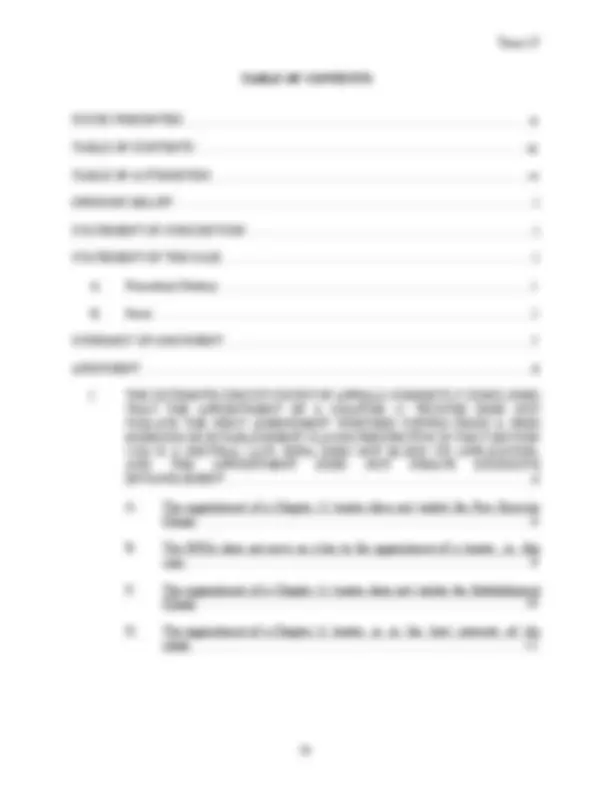
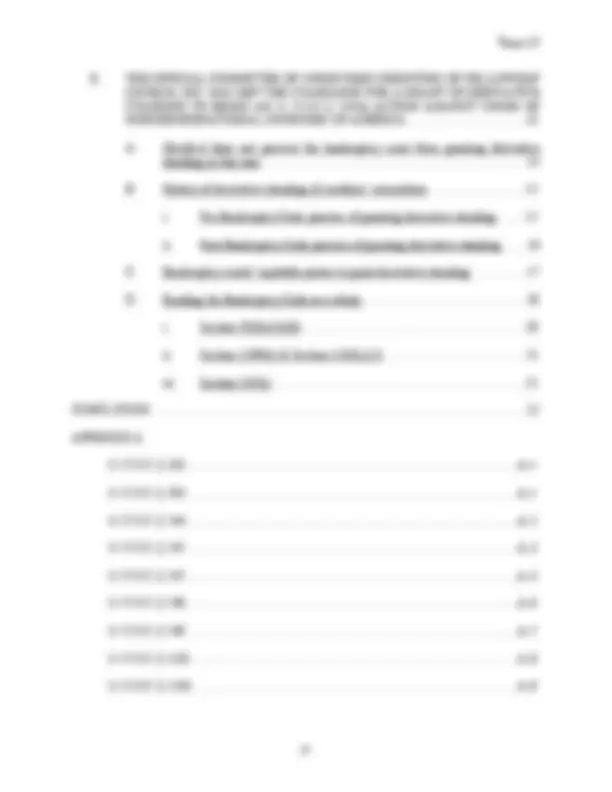
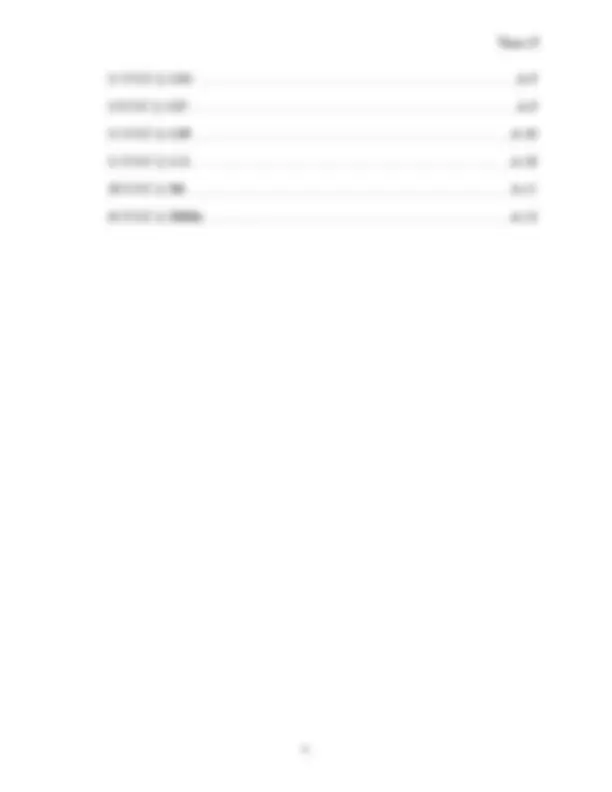
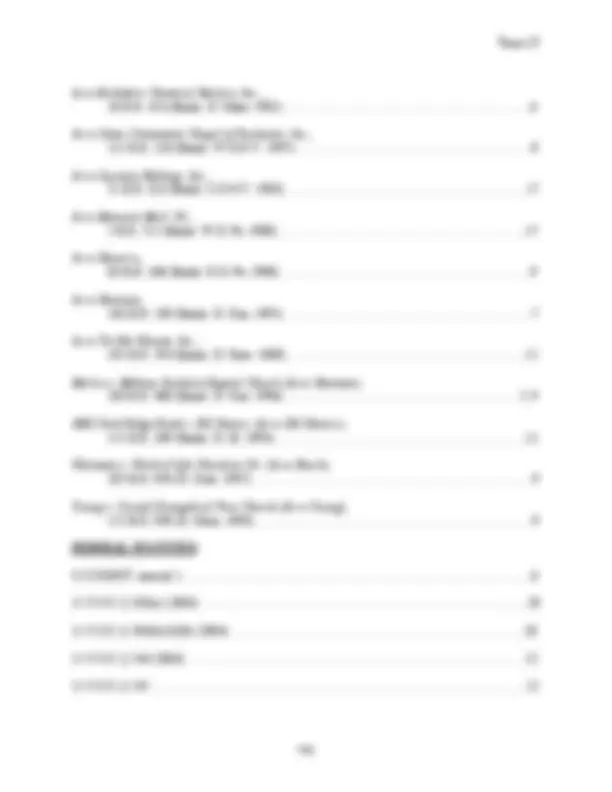
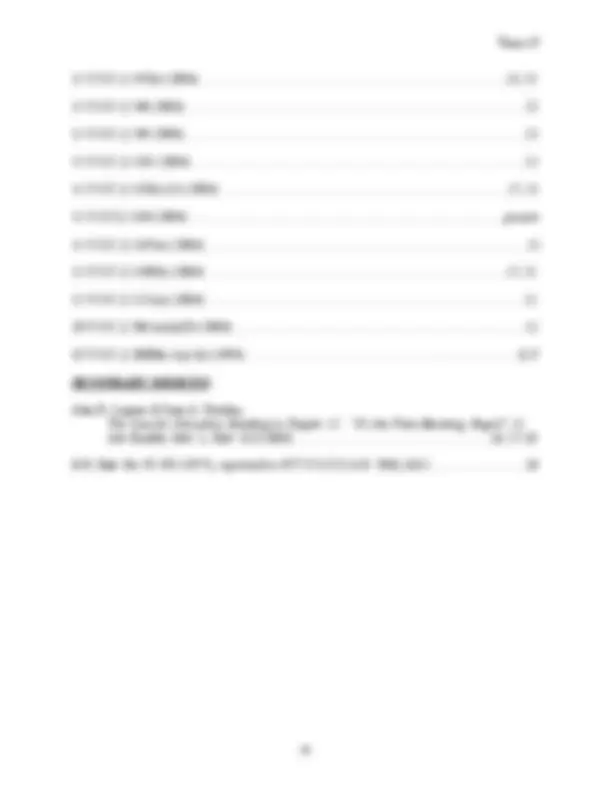
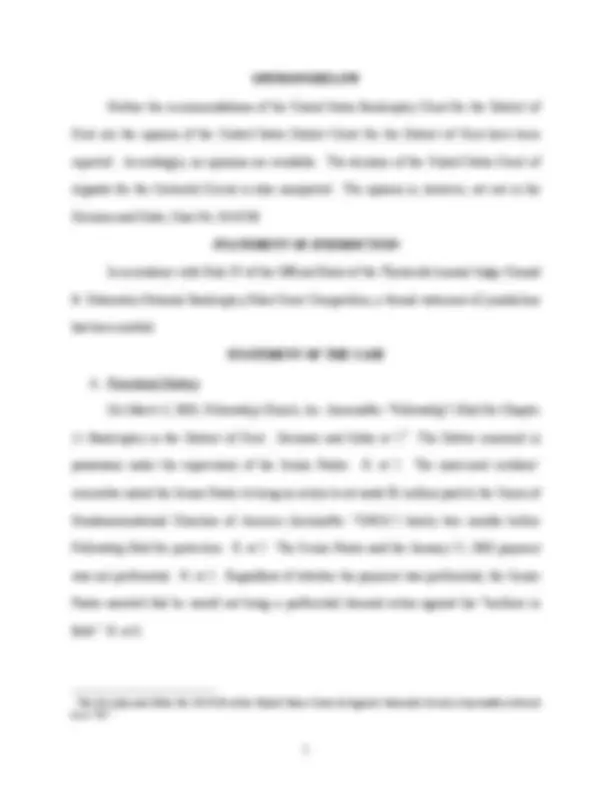
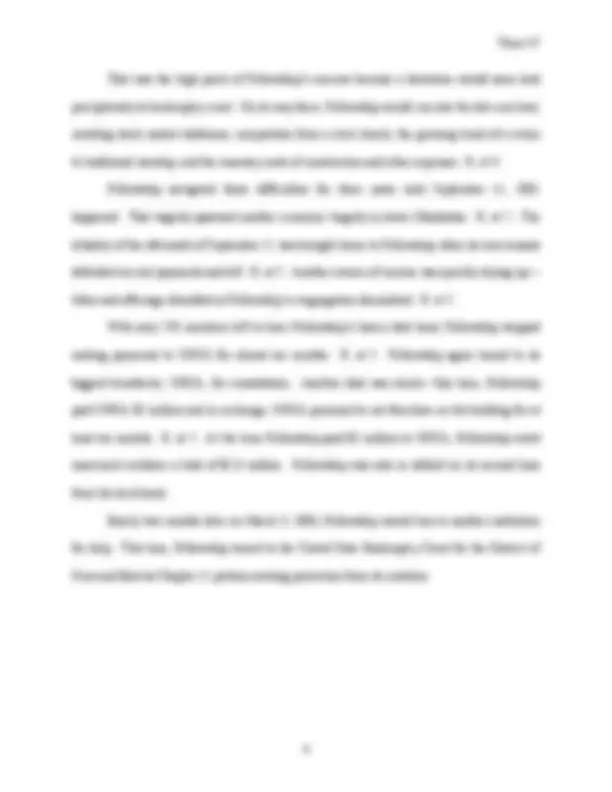
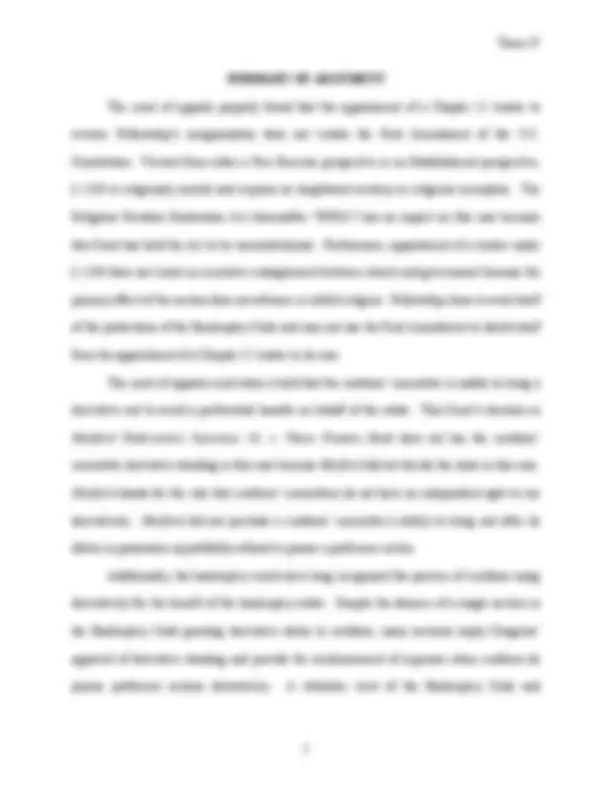
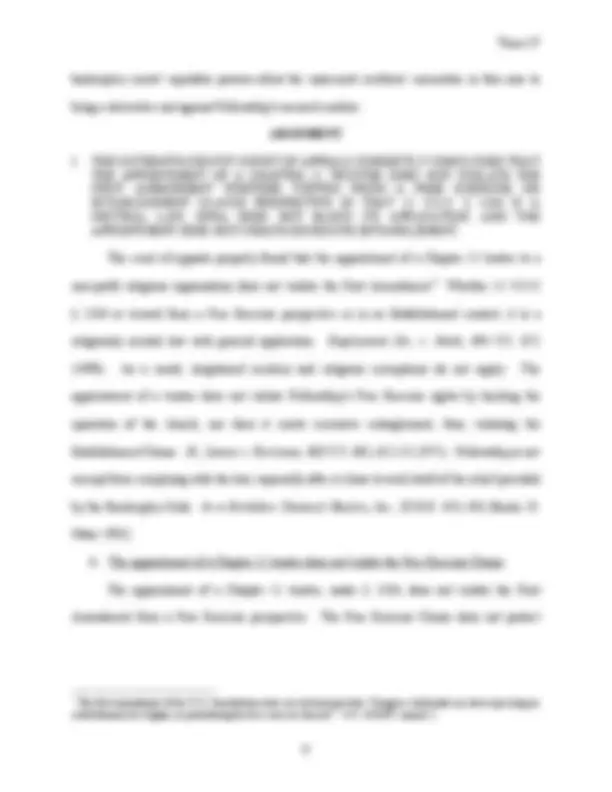
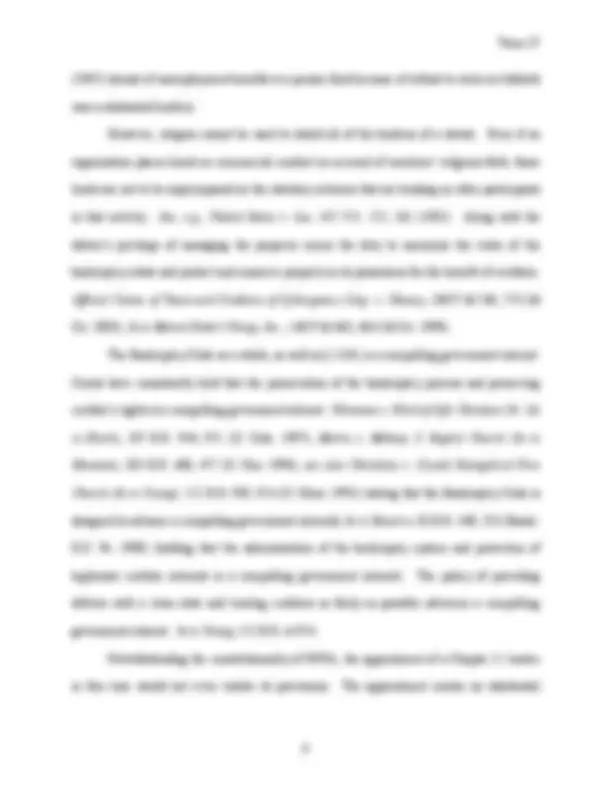
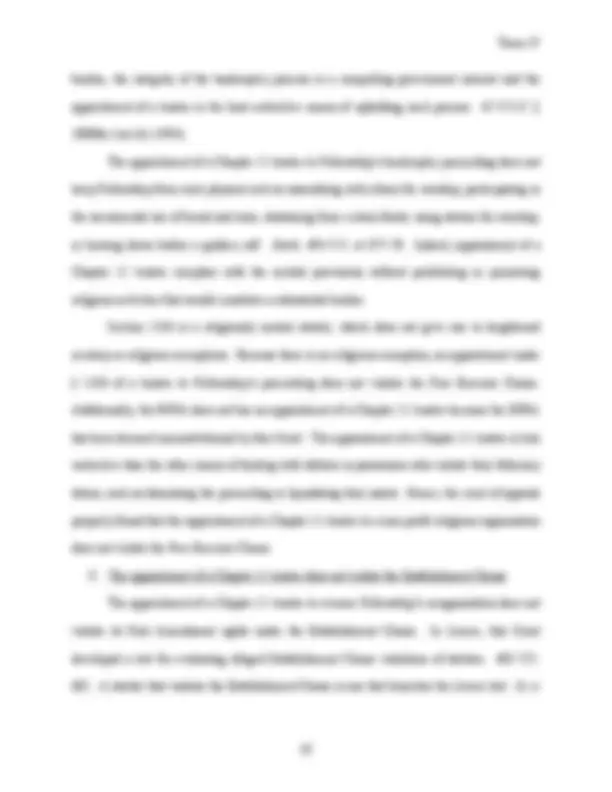
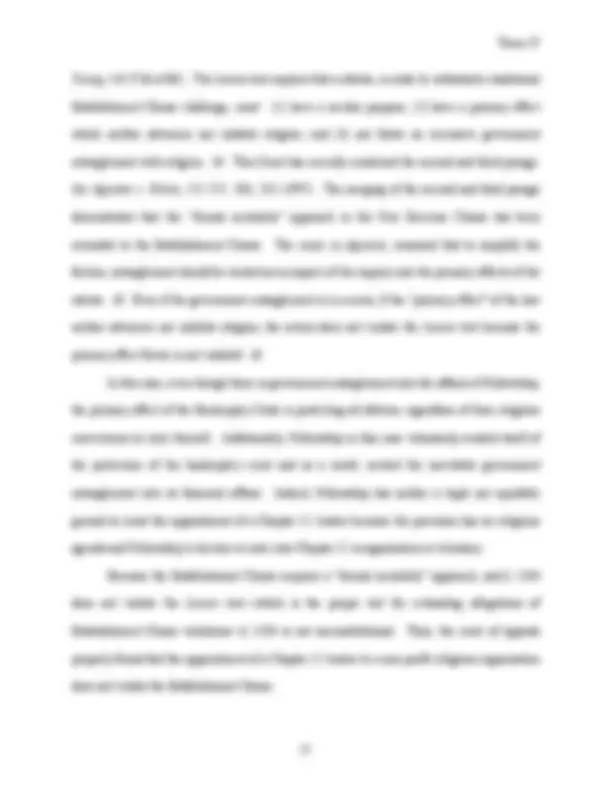
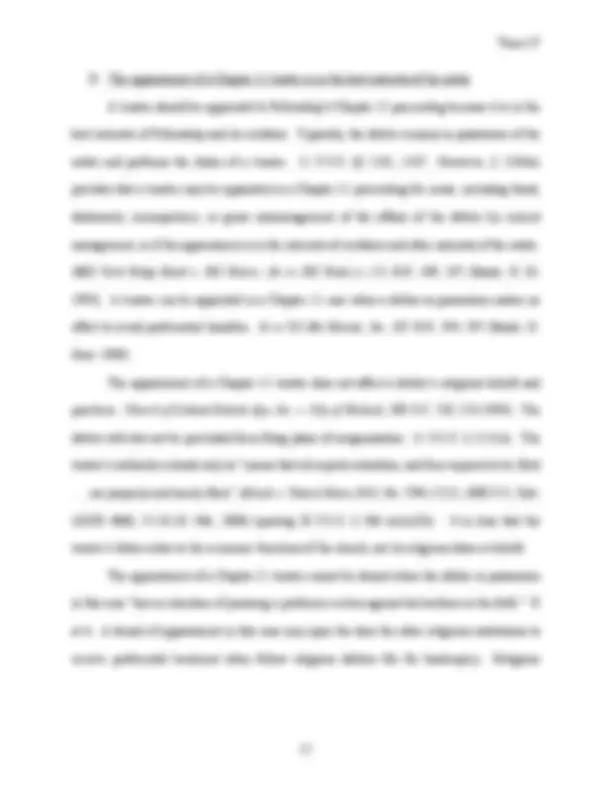
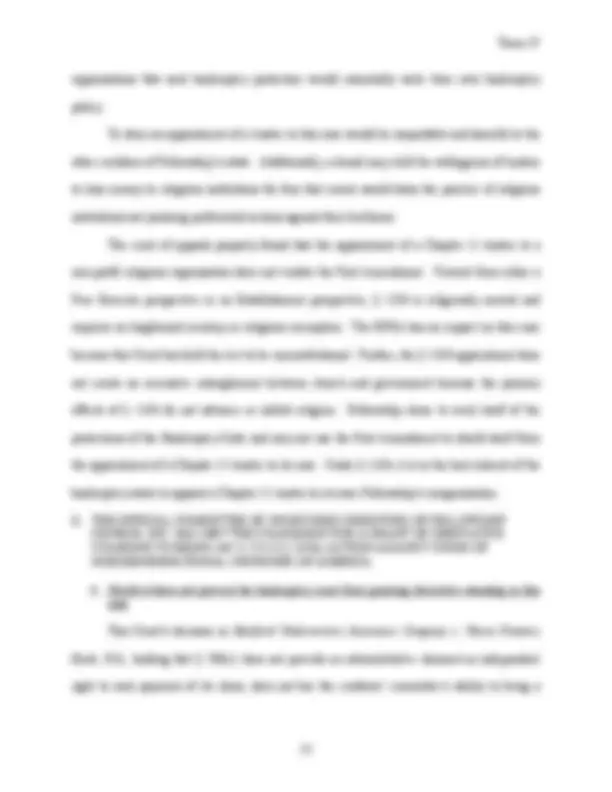
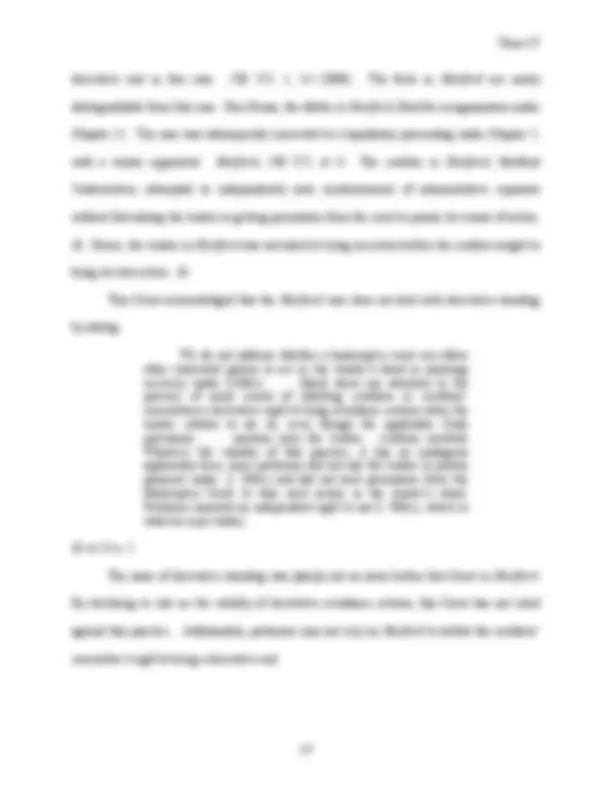
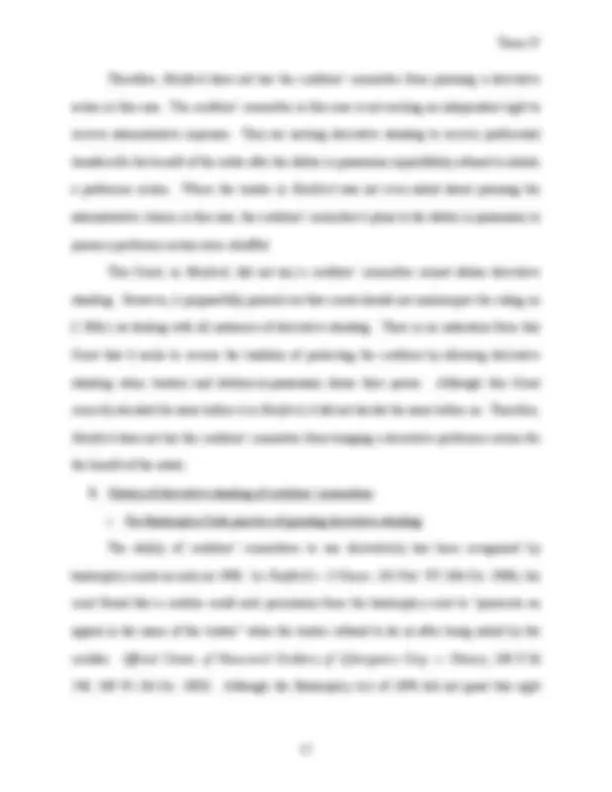
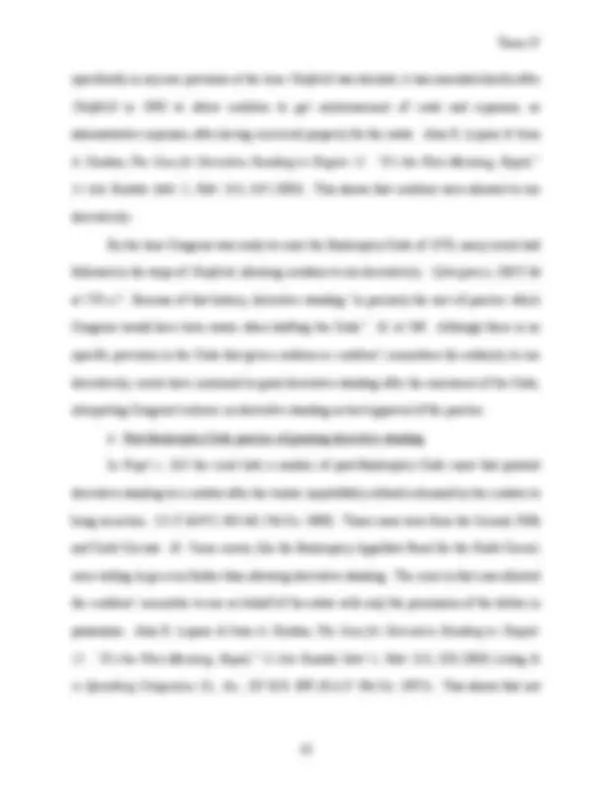
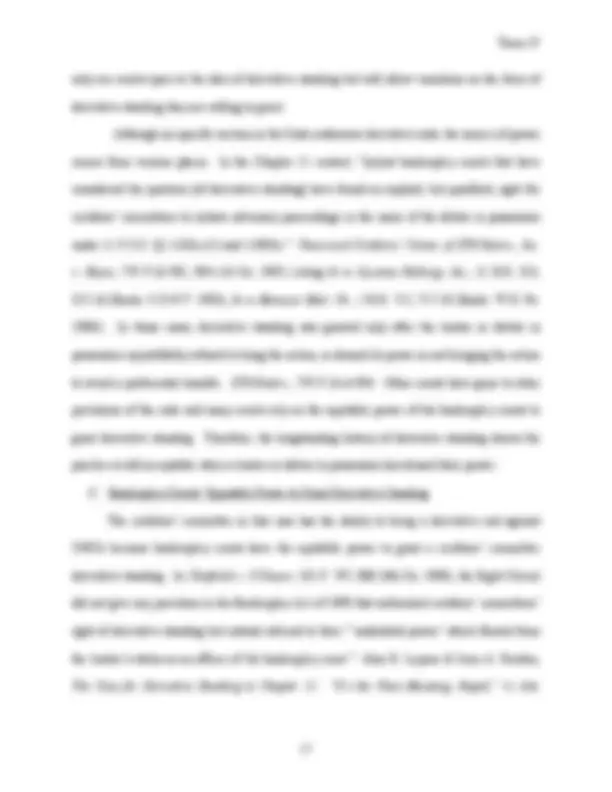
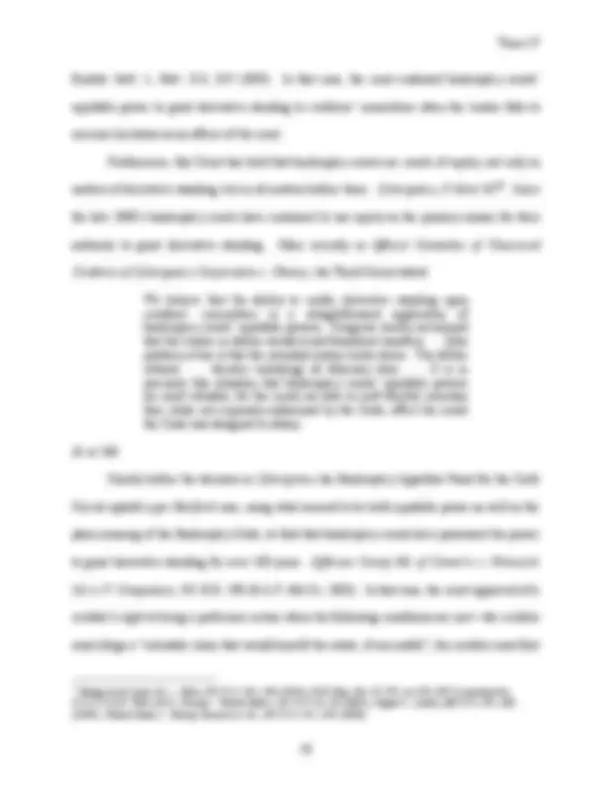
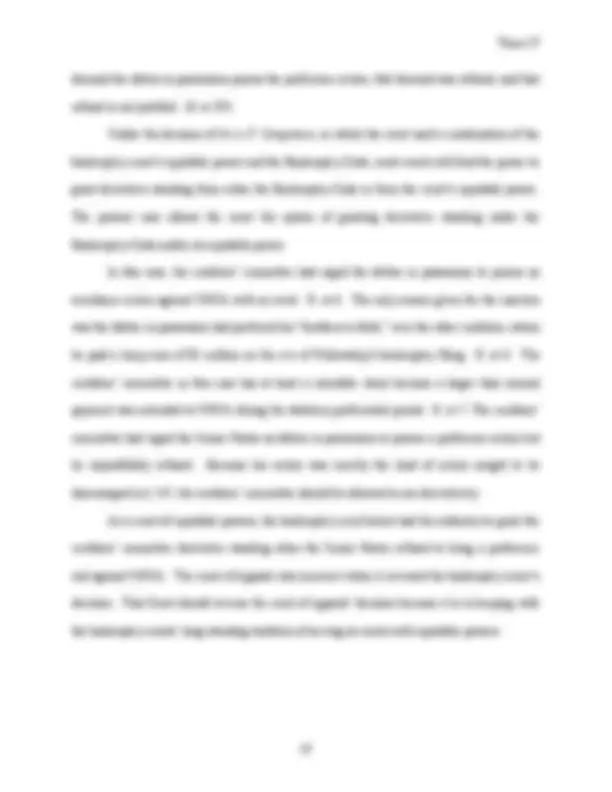
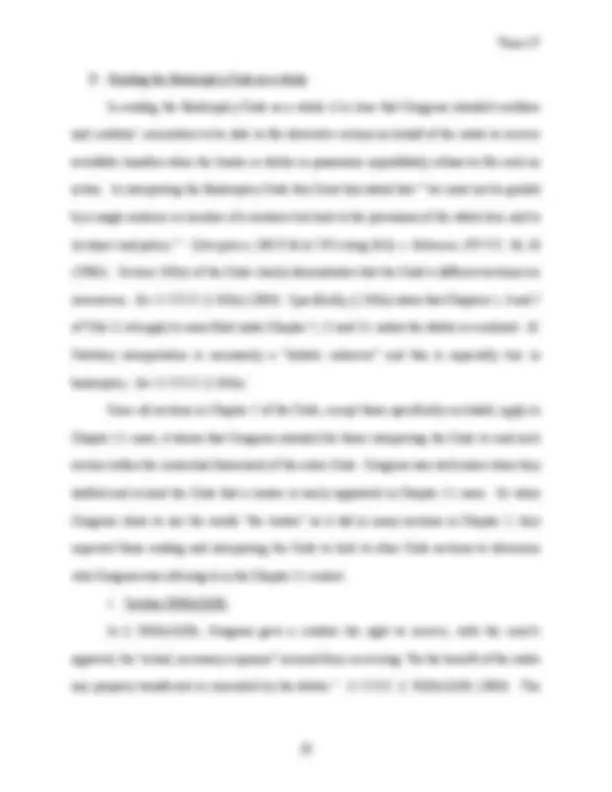
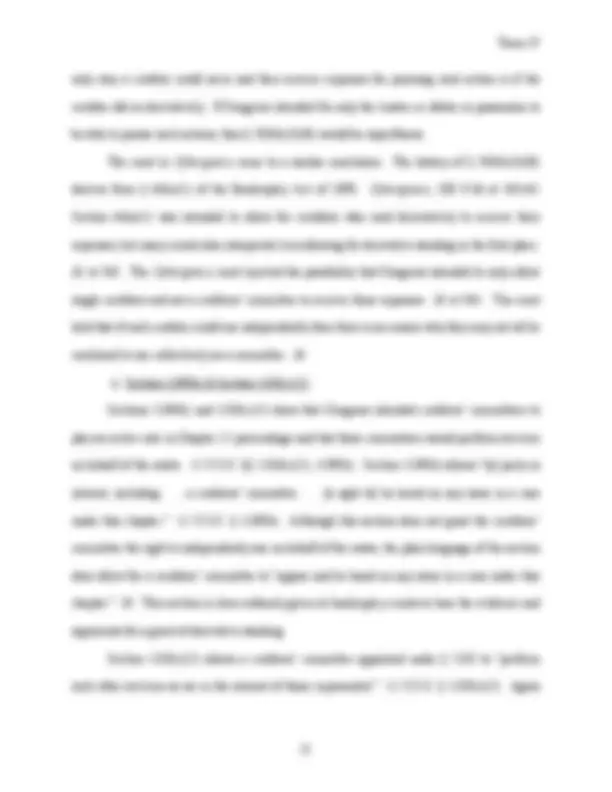
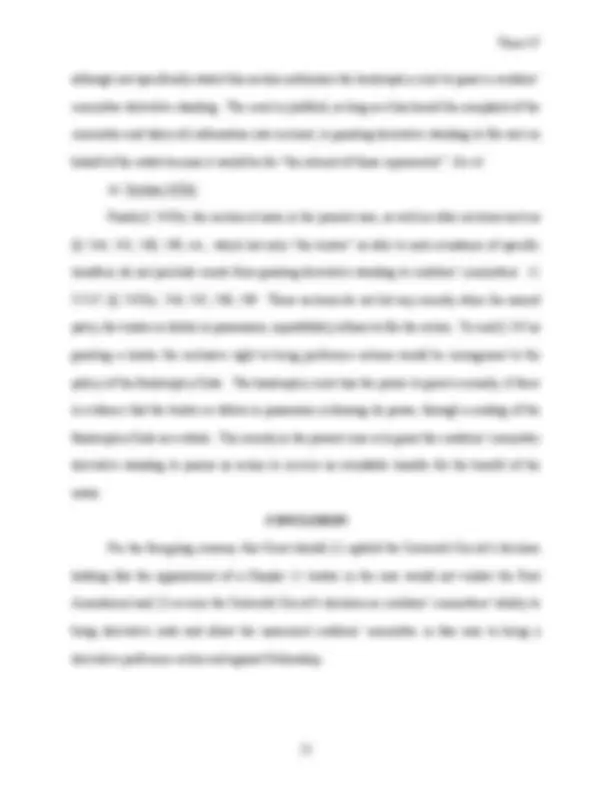
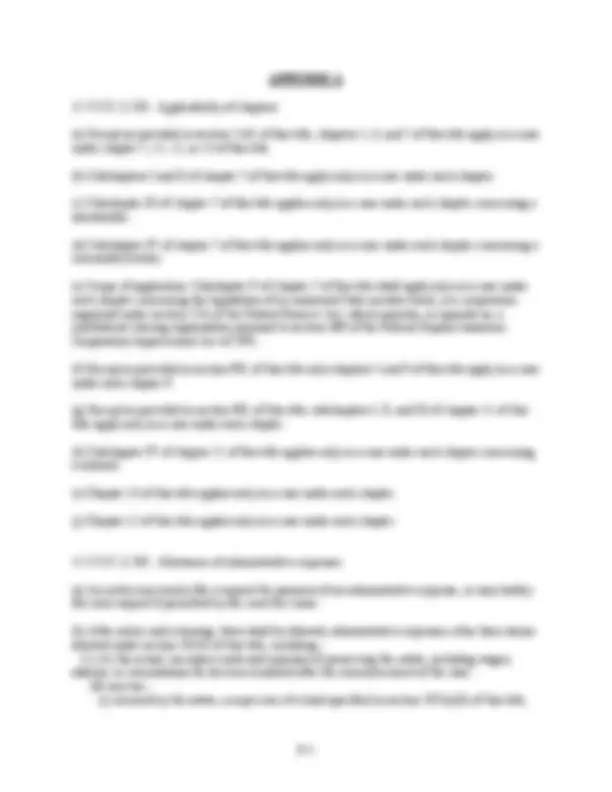
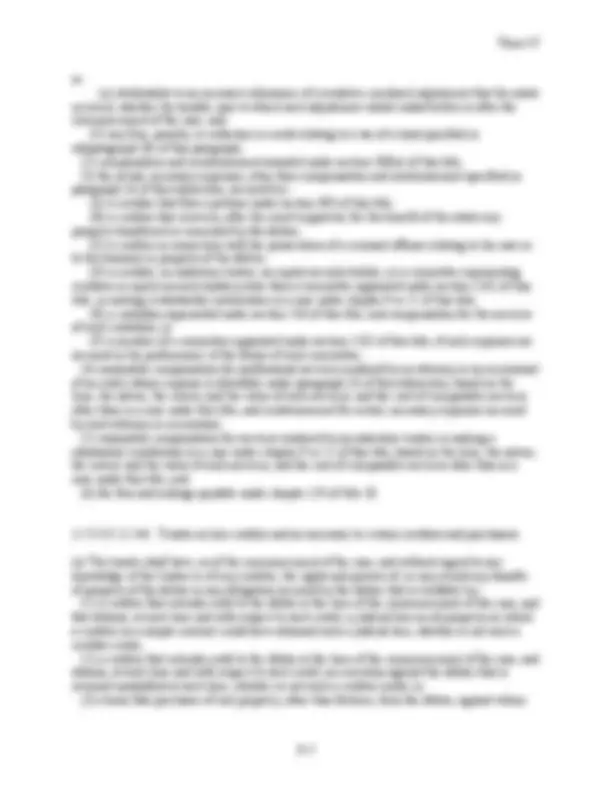
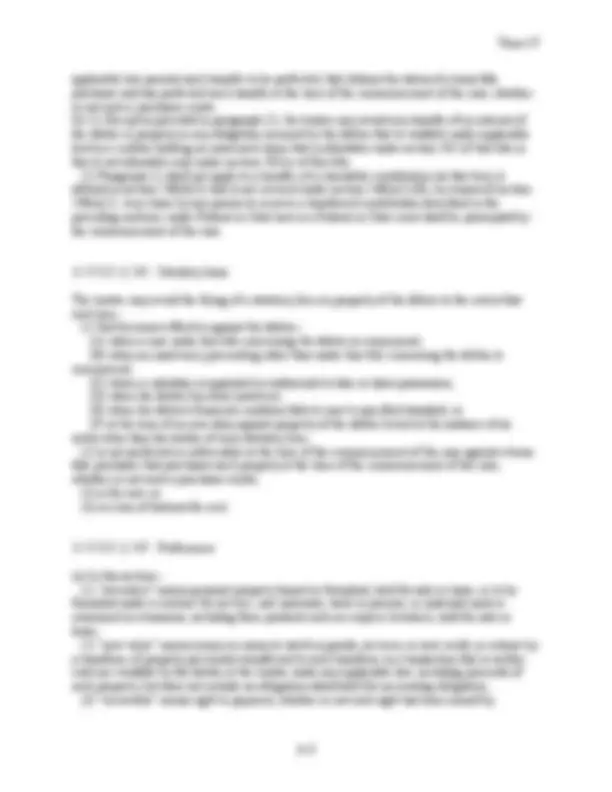
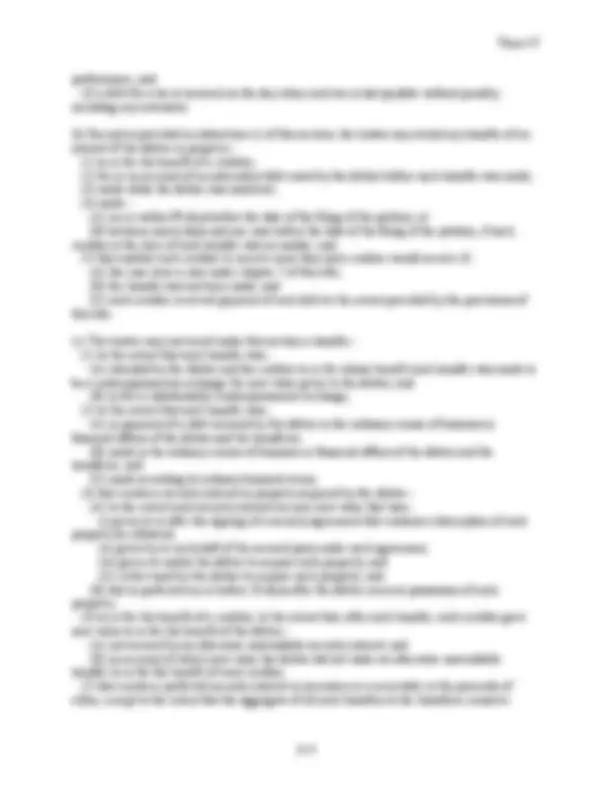
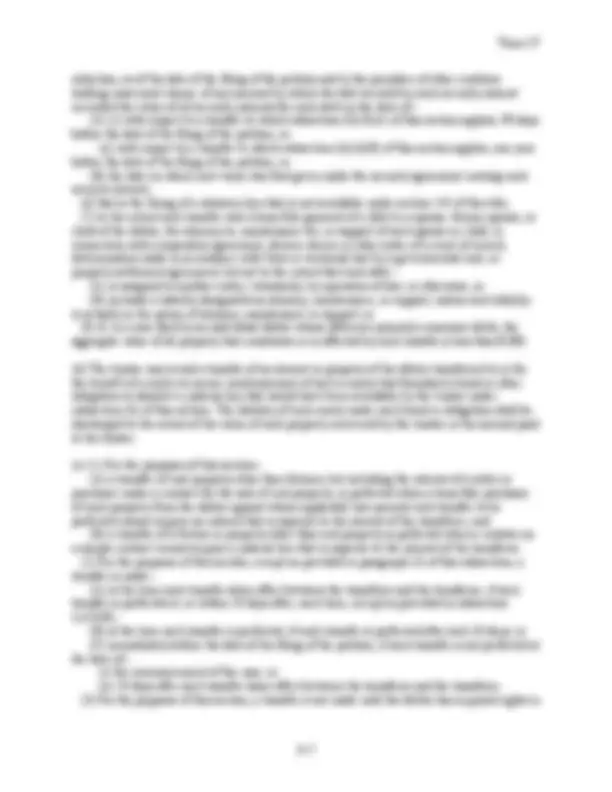
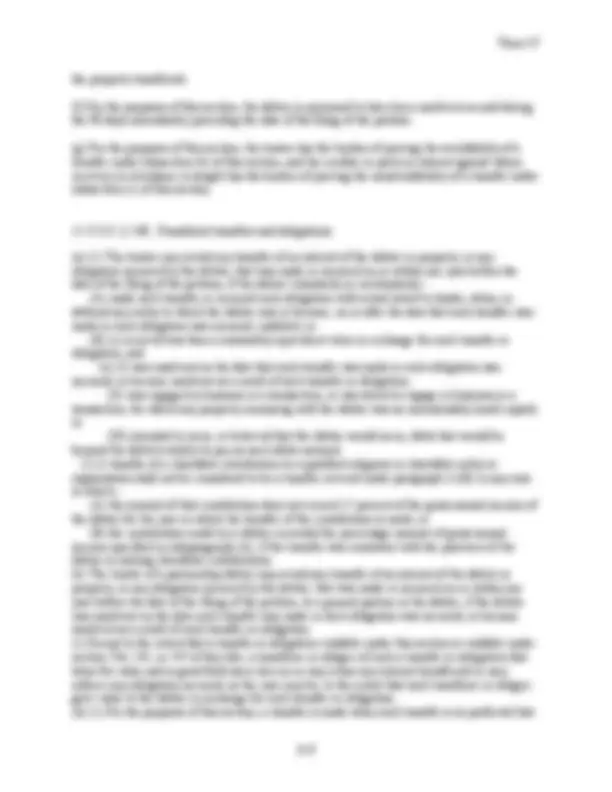
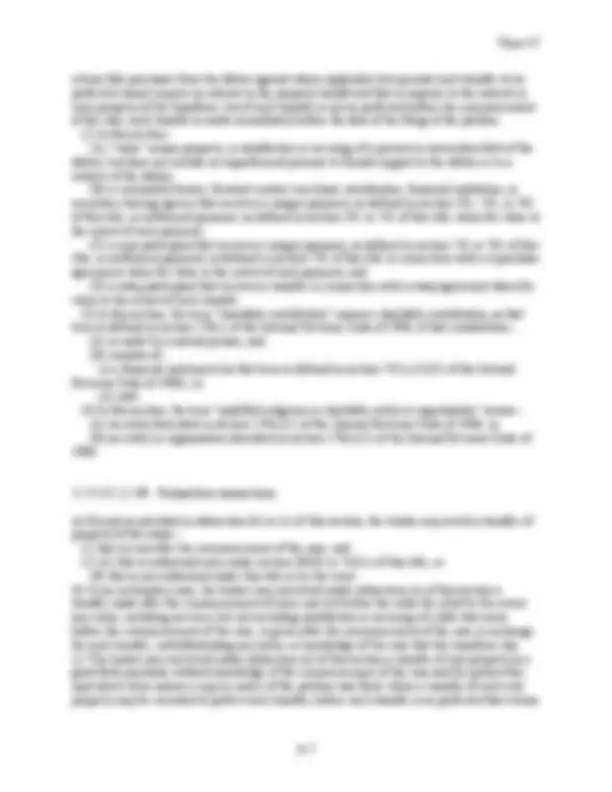
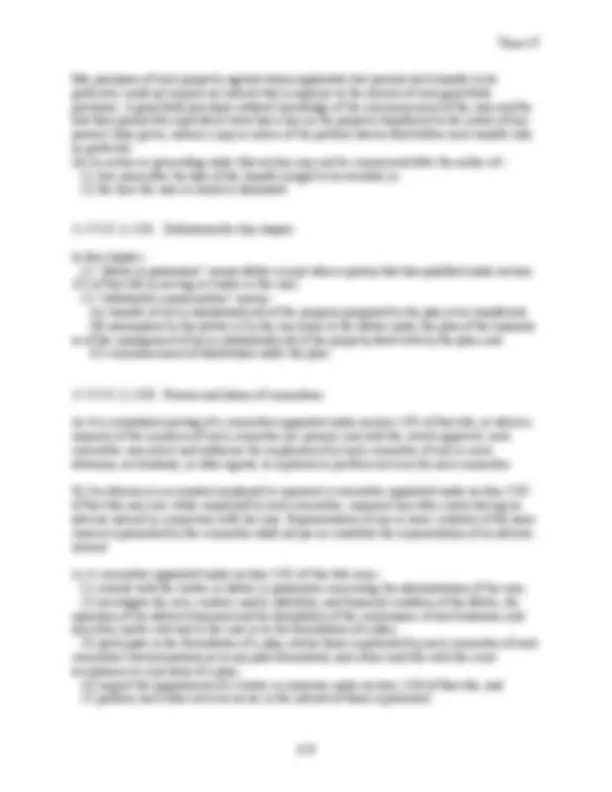
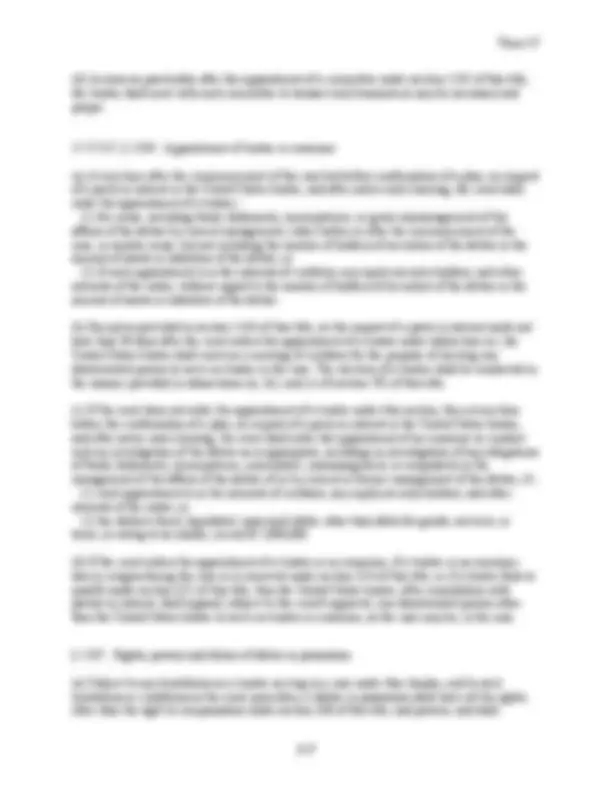
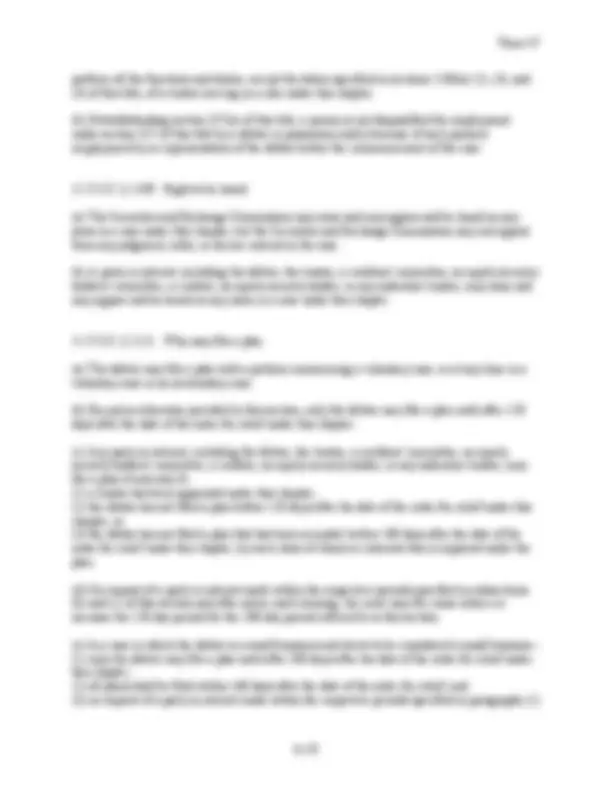
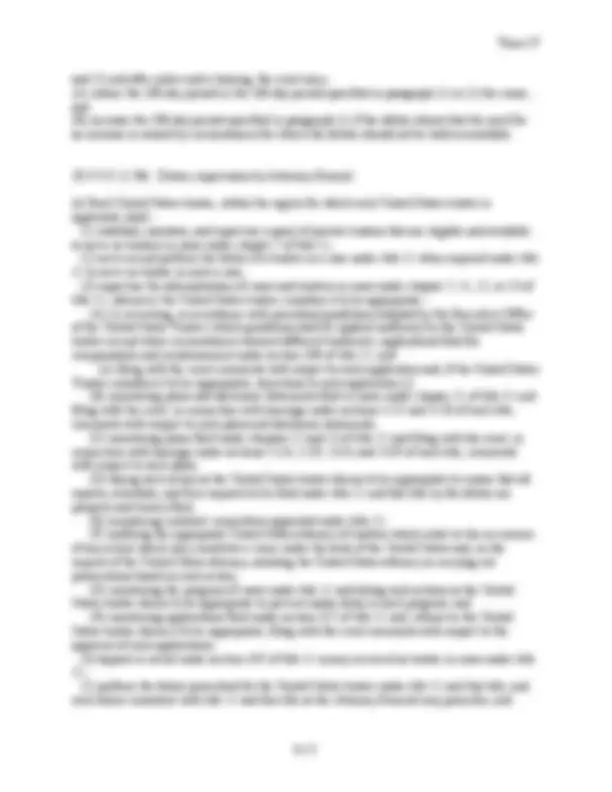
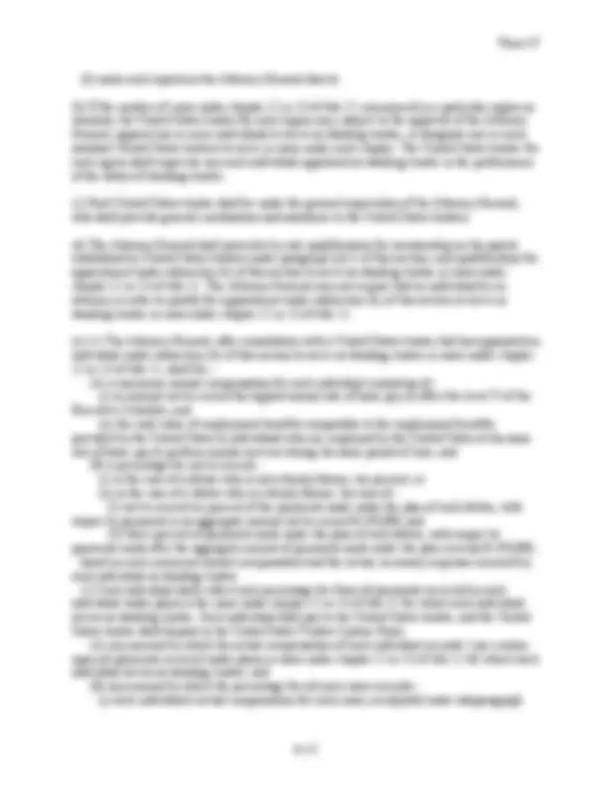
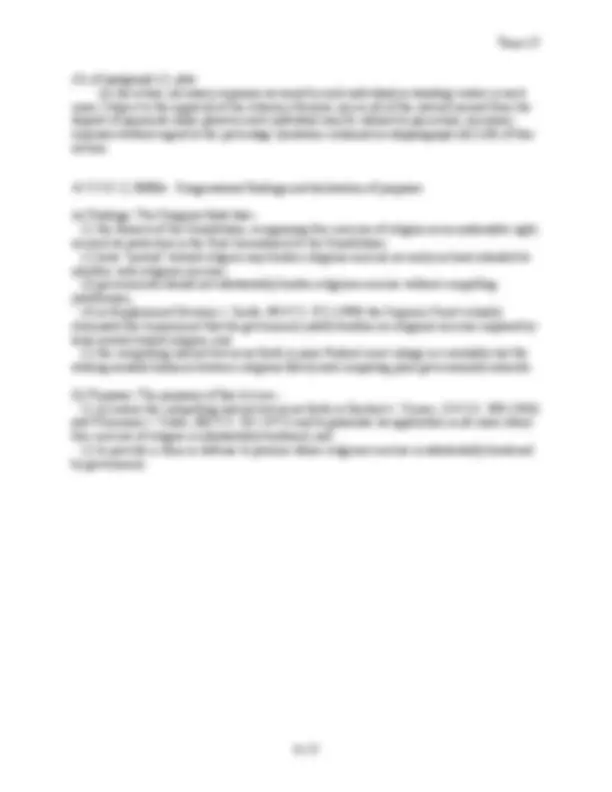


Study with the several resources on Docsity

Earn points by helping other students or get them with a premium plan


Prepare for your exams
Study with the several resources on Docsity

Earn points to download
Earn points by helping other students or get them with a premium plan
Community
Ask the community for help and clear up your study doubts
Discover the best universities in your country according to Docsity users
Free resources
Download our free guides on studying techniques, anxiety management strategies, and thesis advice from Docsity tutors
Sections (a) and (e) of the bankruptcy code regarding the avoidance of fraudulent transfers and obligations. It covers various scenarios where a transfer or obligation can be avoided, including those made to creditors, for antecedent debts, while insolvent, or within a certain time frame before filing for bankruptcy. The document also specifies exceptions for contemporaneous exchanges, ordinary business transactions, and security interests. Furthermore, it discusses the role of the trustee in avoiding such transfers and obligations.
Typology: Exams
1 / 44

This page cannot be seen from the preview
Don't miss anything!





































No. 04-
IN THE SUPREME COURT OF THE UNITED STATES OCTOBER TERM 2004
IN THE MATTER OF FELLOWSHIP CHURCH, INC., Debtor FELLOWSHIP CHURCH, INC., Petitioner v. OFFICIAL COMMITTEE OF UNSECURED CREDITORS OF FELLOWSHIP CHURCH, INC., Respondent
On Appeal from the United States Court of Appeals Sixteenth Circuit
BRIEF FOR THE RESPONDENT
Team 37 Counsel for the Respondent
ii
Chatfield v. O’Dwyer 101 F. 797 (8th Cir. 1900) …………………………………………………………..15, 17,
Christians v. Crystal Evangelical Free Church (In re Young) , 141 F.3d 854 (8th Cir. 1998) …………………………………………...…………7, 10- Fogel v. Zell , 221 F.3d 955 (7th Cir. 2000) …………………………………………………………… Hamilton v. Schriro , 74 F.3d 1545 (8th Cir. 1996) …………………………………………………………….. In re Marvel Entertainment Group, Inc. , 140 F.3d 463 (3d Cir. 1998) ……………………………………………………………… Official Comm. of Unsecured Creditors of Cybergenics Corp. v. Chinery 330 F.3d 548 (3d Cir. 2003) ……………………………………………………….., passim
Unsecured Creditors’ Comm. of STN Enters., Inc. v. Noyes , 779 F.2d 901 (2d Cir. 1985) …………………………………………………………….. Werner v. McCotter , 49 F.3d 1476 (10th Cir. 1995) …………………………………………………………… UNITED STATES DISTRICT COURT CASES: Allnutt v. United States DOJ , No. Y98-17222, 2000 U.S. Dist. LEXIS 4060 (D. Md., 2000) ………………………… Klemka v. Nichols , 943 F. Supp. 470, 474 (M.D. Pa. 1996) ………………………………………………….. UNITED STATES BANKRUPTCY APPELLATE PANEL CASES: In re Spaulding Composites Co., Inc. , 207 B.R. 899 (B.A.P. 9th Cir. 1997) …………………………………………………… Jefferson County Bd. of Comm’rs v. Voinovich ( In re V. Companies ), 292 B.R. 290 (B.A.P. 6th Cir. 2003) ………………………………………………..18, 19 UNITED STATES BANKRUPTCY COURT CASES: Geltzer v. Crossroads Tabernacle ( In re Rivera ), 214 B.R. 101 (Bankr. S.D.N.Y. 1997) …………………………………………………7, 8
vii
In re Berkshire Chemical Haulers, Inc. , 20 B.R. 454 (Bankr. D. Mass. 1982) …………………………………………………….. In re Gates Community Chapel of Rochester, Inc. , 212 B.R. 220 (Bankr. W.D.N.Y. 1997) ………………………………………………….. In re Joyanna Holitogs, Inc. 21 B.R. 323 (Bankr. S.D.N.Y. 1983) ……………………………………………………17,
In re Monsour Med. Ctr. , 5 B.R. 715 (Bankr. W.D. Pa. 1980) …………………………………………………….. In re Navarro , 83 B.R. 348 (Bankr. E.D. Pa. 1988) ……………………………………………………... In re Newman , 183 B.R. 239 (Bankr. D. Kan. 1995) …………………………………………………….. In re Tel-Net Hawaii, Inc. , 105 B.R. 594 (Bankr. D. Haw. 1989) …………………………………………………... Morris v. Midway Southern Baptist Church 203 B.R. 468 (Bankr. D. Kan. 1996) …………………………………………………..7, 9 (In re Newman),
NBD Park Ridge Bank v. SRJ Enters. (In re SRJ Enters.) , 151 B.R. 189 (Bankr. D. Ill. 1993) ……………………………………………………... Weinman v. Word of Life Christian Ctr. ( In re Bloch ), 207 B.R. 944 (D. Colo. 1997) ……………………………………………………………. Young v. Crystal Evangelical Free Church (In re Young) , 152 B.R. 939 (D. Minn. 1993) …………………………………………………………… FEDERAL STATUTES: U.S CONST. amend. I. …………………………………………………………………………... 11 U.S.C. § 103(a) (2004) …………………………………………………………………..…... 11 U.S.C. § 503(b)(3)(B) (2004) ……………………………………………………………….. 11 U.S.C. § 544 (2004) …………………………………………………………………………. 11 U.S.C. § 545 ………………………………………………………………………….………
viii
Neither the recommendations of the United States Bankruptcy Court for the District of Kent nor the opinion of the United States District Court for the District of Kent have been reported. Accordingly, no opinions are available. The decision of the United States Court of Appeals for the Sixteenth Circuit is also unreported. The opinion is, however, set out in the Decision and Order, Case No. 04-0538. STATEMENT OF JURISDICTION In accordance with Rule IV of the Official Rules of the Thirteenth Annual Judge Conrad B. Duberstein National Bankruptcy Moot Court Competition, a formal statement of jurisdiction has been omitted. STATEMENT OF THE CASE A. Procedural History On March 3, 2003, Fellowship Church, Inc. (hereinafter “Fellowship”) filed for Chapter 11 Bankruptcy in the District of Kent. Decision and Order at 5.^1 The Debtor remained in possession under the supervision of the Senior Pastor. R. at 5. The unsecured creditors’ committee asked the Senior Pastor to bring an action to set aside $2 million paid to the Union of Nondenominational Churches of America (hereinafter “UNCA”) barely two months before Fellowship filed for protection. R. at 5. The Senior Pastor said the January 15, 2003 payment was not preferential. R. at 5. Regardless of whether the payment was preferential, the Senior Pastor asserted that he would not bring a preferential demand action against his “brothers in faith.” R. at 6.
(^1) The Decision and Order No. 04-0538 of the United States Court of Appeals Sixteenth Circuit is hereinafter referred to as “R.”
1
The creditors’ committee then filed for a motion for appointment of a Chapter 11 trustee or in the alternative, for permission to file a preference action. R. at 6. The bankruptcy court denied the motion holding that an appointment would violate the First Amendment of the Constitution. R. at 6. After hearing evidence and argument, the bankruptcy court did grant the creditors’ committee’s request to bring a derivative preference action. R. at 6. Fellowship appealed to the United States District Court for the District of Kent. R. at 6. The district court affirmed the bankruptcy court’s decision and both parties appealed. R. at 6. On appeal, the United States Court of Appeals for the Sixteenth Circuit reversed the district court by holding that: 1) an appointment of a Chapter 11 trustee in this case would not violate the First Amendment, R. at 11; and 2) a creditors’ committee cannot bring a preference action derivatively because the powers vested in the trustee under § 547(b) cannot be delegated to the creditors’ committee. R. at 14. The case was remanded for further proceedings. R. at 14. The two issues—whether a religious organization debtor may be subjected to appointment of a trustee and whether a creditors’ committee may properly bring a derivative preference action—now come before this Court after writ of certiorari was granted (Pet. Writ of Cert., dated December 19, 2004). B. Statement of Facts Five young Manhattan families seeking spiritual growth started a small church that became, at its height, a 4,000-strong congregation. R. at 2-3. The burgeoning Fellowship Church soon needed a much bigger facility and purchased a $14 million ten-story multi-purpose building. R. at 3. A confluence of factors, culminating in the September 11 terrorists attacks and its aftermath, ultimately brought Fellowship to its knees and resulted in a Chapter 11 filing. R. at 4-5. Two months before Fellowship sought Chapter 11 protection, it paid UNCA, its foremost
That was the high point of Fellowship’s success because a downturn would soon lead precipitously to bankruptcy court. On its way there, Fellowship would run into the dot-com bust, resulting stock market doldrums, competition from a rival church, the growing trend of a return to traditional worship, and the runaway costs of construction and other expenses. R. at 4. Fellowship navigated those difficulties for three years until September 11, 2001 happened. That tragedy spawned another economic tragedy in lower Manhattan. R. at 5. The lethality of the aftermath of September 11 was brought home to Fellowship when its own tenants defaulted on rent payments and left. R. at 5. Another source of income was quickly drying up— tithes and offerings dwindled as Fellowship’s congregation diminished. R. at 5. With only 750 members left to bear Fellowship’s heavy debt load, Fellowship stopped making payments to UNCA for almost six months. R. at 5. Fellowship again turned to its biggest benefactor, UNCA, for consultation. Another deal was struck—this time, Fellowship paid UNCA $2 million and in exchange, UNCA promised to not foreclose on the building for at least six months. R. at 5. At the time Fellowship paid $2 million to UNCA, Fellowship owed unsecured creditors a total of $1.8 million. Fellowship was also in default on its second loan from the local bank. Barely two months later on March 3, 2003, Fellowship would turn to another institution for help. This time, Fellowship turned to the United State Bankruptcy Court for the District of Kent and filed its Chapter 11 petition seeking protection from its creditors.
The court of appeals properly found that the appointment of a Chapter 11 trustee to oversee Fellowship’s reorganization does not violate the First Amendment of the U.S. Constitution. Viewed from either a Free Exercise perspective or an Establishment perspective, § 1104 is religiously neutral and requires no heightened scrutiny or religious exemption. The Religious Freedom Restoration Act (hereinafter “RFRA”) has no impact on this case because this Court has held the Act to be unconstitutional. Furthermore, appointment of a trustee under § 1104 does not create an excessive entanglement between church and government because the primary effect of the section does not advance or inhibit religion. Fellowship chose to avail itself of the protections of the Bankruptcy Code and may not use the First Amendment to shield itself from the appointment of a Chapter 11 trustee to its case. The court of appeals erred when it held that the creditors’ committee is unable to bring a derivative suit to avoid a preferential transfer on behalf of the estate. This Court’s decision in Hartford Underwriters Insurance Co. v. Union Planters Bank does not bar the creditors’ committee derivative standing in this case because Hartford did not decide the issue in this case. Hartford stands for the rule that creditors’ committees do not have an independent right to sue derivatively. Hartford did not preclude a creditors’ committee’s ability to bring suit after its debtor in possession unjustifiably refused to pursue a preference action. Additionally, the bankruptcy courts have long recognized the practice of creditors suing derivatively for the benefit of the bankruptcy estate. Despite the absence of a single section in the Bankruptcy Code granting derivative status to creditors, many sections imply Congress’ approval of derivative standing and provide for reimbursement of expenses when creditors do pursue preference actions derivatively. A wholistic view of the Bankruptcy Code and
individual religious practices from the effects of a neutral law.^3 Christians v. Crystal Evangelical Free Church (In re Young) , 141 F.3d 854, 862 (8th Cir. 1998). In 1990, this Court held that generally applicable religiously neutral laws neither require heightened scrutiny nor provide for religious exemptions. Smith , 494 U.S. at 886.^4 The relevant case law—as well as Fellowship’s own admission^5 —shows that § 1104 and the Bankruptcy Code as a whole are neutral laws that do not target religion. Id. The Bankruptcy Code deals with competing claimants and not “questions of religious doctrine, polity and practice.” Morris v. Midway Southern Baptist Church , 203 B.R. 468, 476 (Bankr. D. Kan. 1996); see also Geltzer v. Crossroads Tabernacle ( In re Rivera ), 214 B.R. 101, 106 (Bankr. S.D.N.Y. 1997) (holding that § 548 is a law of general applicability that neither prevents nor promotes religious activity; its goal is equal distribution to insolvent’s creditors). Section 1104 allows the recovery of any transfer that meets its criteria, not because the transfer consists of religious motivations or was the result of a religious practice. 11 U.S.C. § 1104; see also In re Newman , 183 B.R. 239, 250 (Bankr. D. Kan. 1995) (stating that the Bankruptcy Code makes no reference whatsoever to religious practices and is neutral on its face). Section 1104 makes no mention of religious motivations and is easily read as a religiously neutral statute without a religious exception. In this case, because § 1104 is a religiously neutral law, the appointment of a trustee to oversee Fellowship, pursuant to § 1104, does not violate the Free Exercise Clause of the First Amendment.
(^3) In fact, this Court articulated that the Establishment Clause does "not call for total separation between church and state; total separation is not possible in an absolute sense. Some relationship between government and religiousorganizations is inevitable." Lemon , 403 U.S. at 614. (^4) Prior to Smith , government actions that substantially burden a religious practice must be justified by a compelling government interest.through the application of the Sherbert v. Verner Sherbert test was the denial of unemployment compensation., 374 U.S. 398, 402-403 (1963). The only governmental action invalidated Id. (^5) “Fellowship concedes, as it must, that both the Bankruptcy Code as a whole and the section 1104 provision for appointing a Chapter 11 trustee are neutral laws that don’t target religion.” R at 7.
7
B. The RFRA does not serve as a bar to the appointment of a trustee in this case The RFRA does not prevent a Chapter 11 trustee appointment because RFRA violates the separation of powers doctrine. City of Boerne v. Flores , 521 U.S. 507 (1997). After Smith held that religiously neutral laws did not require heightened scrutiny or religious exemptions, Congress enacted RFRA in an attempt to override the Court. RFRA states the government “shall not substantially burden a person’s exercise of religion even if the burden results from a rule of general applicability,” except when the burden “(1) is in furtherance of a compelling governmental interest; and (2) is the least restrictive means of furthering that compelling government interest.” 42 U.S.C. § 2000bb-1(a)-(b) (1994). After RFRA was passed, Congress’ authority to pass that Act was quickly challenged.^6 Subsequently, this Court found RFRA to be unconstitutional and held that RFRA violated the separation of powers doctrine. 7 Flores , 521 U.S. at 536; see also In re Rivera , 214 B.R. at 106; In re Gates Cmty. Chapel of Rochester, Inc. , 212 B.R. 220, 226 (Bankr. W.D.N.Y. 1997). Government action “substantially burdens” religious practices when the “purpose or effect of [the] law is to impede the observance of one or all religions or is to discriminate invidiously between religions.” Sherbert , 374 U.S. at 404 (1963). The interference must significantly inhibit or restrict religious conduct or expression, inhibit the ability to adhere to one’s faith, or deny an individual a reasonable opportunity to participate in religious activities. Klemka v. Nichols , 943 F. Supp. 470, 474 (M.D. Pa. 1996) (citing Werner v. McCotter , 49 F.3d 1476, 1480 (10th Cir. 1995)); see also Hobbie v. Unemployment Appeals Comm’n , 480 U.S. 136
(^6) Hamilton v. Schriro , 74 F.3d 1545, 1570 (8th Cir. 1996) (McMillian, J., dissenting) (“Because Congress does not have the power under § 5 of the Fourteenth Amendment to enact RFRA, I would hold that the Religious FreedomRestoration Act is unconstitutional.”), cert. denied , 519 U.S. 874 (1996). (^7) Fellowship contends the RFRA was passed in response to Smith and blocks the operation of § 1104 here. R. at 7.
8
burden, the integrity of the bankruptcy process is a compelling government interest and the appointment of a trustee is the least restrictive means of upholding such process. 42 U.S.C. § 2000bb-1(a)-(b) (1994). The appointment of a Chapter 11 trustee to Fellowship’s bankruptcy proceeding does not keep Fellowship from such physical acts as assembling with others for worship, participating in the sacramental use of bread and wine, abstaining from certain foods, using statues for worship, or bowing down before a golden calf. Smith, 494 U.S. at 877-78. Indeed, appointment of a Chapter 11 trustee complies with the neutral provisions without prohibiting or promoting religious activities that would constitute a substantial burden. Section 1104 is a religiously neutral statute, which does not give rise to heightened scrutiny or religious exemptions. Because there is no religious exemption, an appointment under § 1104 of a trustee to Fellowship’s proceeding does not violate the Free Exercise Clause. Additionally, the RFRA does not bar an appointment of a Chapter 11 trustee because the RFRA has been deemed unconstitutional by this Court. The appointment of a Chapter 11 trustee is less restrictive than the other means of dealing with debtors in possession who violate their fiduciary duties, such as dismissing the proceeding or liquidating their assets. Hence, the court of appeals properly found that the appointment of a Chapter 11 trustee to a non-profit religious organization does not violate the Free Exercise Clause. C. The appointment of a Chapter 11 trustee does not violate the Establishment Clause The appointment of a Chapter 11 trustee to oversee Fellowship’s reorganization does not violate its First Amendment rights under the Establishment Clause. In Lemon , this Court developed a test for evaluating alleged Establishment Clause violations of statutes. 403 U.S.
Young , 141 F.3d at 862. The Lemon test requires that a statute, in order to withstand a traditional Establishment Clause challenge, must: (1) have a secular purpose; (2) have a primary effect which neither advances nor inhibits religion; and (3) not foster an excessive government entanglement with religion. Id. This Court has recently combined the second and third prongs. See Agostini v. Felton , 521 U.S. 203, 232 (1997). The merging of the second and third prongs demonstrates that the “formal neutrality” approach in the Free Exercise Clause has been extended to the Establishment Clause. The court, in Agostini , reasoned that to simplify the factors, entanglement should be treated as an aspect of the inquiry into the primary effects of the statute. Id. Even if the government entanglement is in excess, if the “primary effect” of the law neither advances nor inhibits religion, the action does not violate the Lemon test because the primary effect factor is not violated. Id. In this case, even though there is government entanglement into the affairs of Fellowship, the primary effect of the Bankruptcy Code is protecting all debtors, regardless of their religious convictions (or lack thereof). Additionally, Fellowship in this case voluntarily availed itself of the protection of the bankruptcy court and as a result, invited the inevitable government entanglement into its financial affairs. Indeed, Fellowship has neither a legal nor equitable ground to resist the appointment of a Chapter 11 trustee because the provision has no religious agenda and Fellowship’s election to enter into Chapter 11 reorganization is voluntary. Because the Establishment Clause requires a “formal neutrality” approach, and § 1104 does not violate the Lemon test—which is the proper test for evaluating allegations of Establishment Clause violations—§ 1104 is not unconstitutional. Thus, the court of appeals properly found that the appointment of a Chapter 11 trustee to a non-profit religious organization does not violate the Establishment Clause.